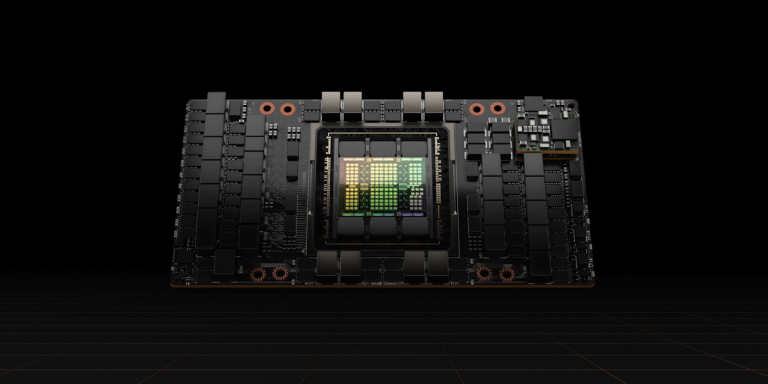
On August 31, NVIDIA announced that it had received a letter from the U.S. government imposing restrictions on exports to China and Russia of its A100 graphics processors and those under development H100. On the same day, AMD announced that the sale of its MI250 accelerator chips to China and Russia would also have to be licensed. The U.S. government explains that it wants to prevent these products from being used for military purposes.
This decision of the Biden administration is clearly aimed at China, since since the invasion of Ukraine, the USA had put in place an embargo on sales of high-end chips to Russia and NVIDIA, on the other hand, declares not to sell anything there.
China has made no secret of its ambition to catch up with and overtake the US in the field of AI to become the world leader. However, it is lagging behind in the manufacture of high-end chips, which it buys from TSMC (Taiwan Semiconductor Manufacturing Company), where chips for NVIDIA and other large companies are made.
On the other hand, it is seeking to annex Taiwan, home to some of the world’s largest hardware and electronics companies, such as TSMC, Foxconn, Asus and Quanta, to weaken the U.S. presence and alliances in the region.
It is the geopolitical context that would have pushed the U.S. government to restrict the sale of advanced GPUs to these 2 countries, but in fact, this will also help slow down China in its advances towards AI. GPUs are much more powerful than CPUs in handling the mass of computations required by AI and ML in enterprise datacenters and for supercomputers.
A restriction on sales to China
In 2020, the U.S. government had required foreign chipmakers using U.S. equipment to receive special permission before doing business with China’s Huawei. In 2021, it was seven Chinese supercomputing organizations that were placed on an economic blacklist. Most recently, the sale of ECAD software used to design 3-nanometer chips, was blocked to China last month.
NVIDIA had announced on August 31 that the current new licensing requirement covers the upcoming A100 and H100 chips, DGX or any other system incorporating A100 or H100 ICs and the A100X. This means that the estimated $400 million in sales to China in Q3 may be impacted if the license is not available in a timely manner or, for that matter, if some customers are denied a license. NVIDIA has planned to offer them alternative products and is working with them in this direction, but as soon as this announcement was made, its share price began to fall.
However, the next day, the company informed that it was finally allowed to continue the development of its H100 GPU and systems running on it in China, with the logistics of A100 and H100 orders (including DGX and HGX systems) through its Hong Kong facility until September 1, 2023, provided that the customers are outside China. It can also provide components to support A100 customers in the US at least until March 2023.
For its part, AMD said it would not really be impacted by the sales restrictions on its MI250 accelerator chips.
As you might expect, China has challenged the decision as a “technology blockade”, which could however boost Chinese start-ups such as Shanghai Biren Intelligent Technology Co, which has reportedly designed a chip that outperforms one of the high-end chips banned by the US government, according to some analysts.
Translated from Les Etats-Unis interdisent l’exportation des puces d’IA de pointe vers la Chine









